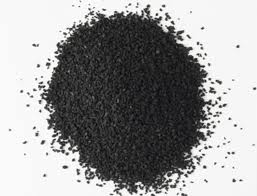Natural Rubber Crumbs Packaging and Export From Nigeria; The Feasibility Report.

Natural rubber is a vital agricultural commodity in Nigeria. The Federal Department of Agriculture first planted its rubber plot in 1906, and in between 1909 and 1917 about two thousand, one hundred and sixty (2,160) hectares of rubber trees were planted in Nigeria.
From 1960s to the early 1970s rubber used to be the fourth most valuable Nigerian agricultural export commodity after cocoa, groundnuts and palm kernels.
It has suffered a significant decline from its pre-eminent position in the seventies due to the emergence of the petroleum industry as a major contributor of the national economy.Natural rubber production in Nigeria is about fifty-three thousand (53,000) tonnes in 2017.
Rubber is grown in Edo, Delta, Ondo, Ogun, Abia, Anambra, Akwa Ibom, Cross Rive, Rivers, Ebonyi and Bayelsa states.
Unlike synthetic rubber, the naturally occurring ones are called Natural Rubber with a botanical name of Hevea brasiliensis.
It is presently harvested mainly from the para rubber tree in the form of latex and others. The rubber tree has a milky sticky secretion which is obtained as latex which can be harvested by tapping the rubber tree in a harmless manner.
Due to the solidification of rubber when exposed to air, thin layers of the tree’s bark is cut downwardly through the latex vessels where the rubber flows from to the tree trunk in a half spiral, the spiral allows a free flow of the latex to a collecting cup.
This is mostly carried out in the early hours of the morning or in the night before the rise in temperature as to allow the latex drip longer before coagulating.
The coagulated lumps in the collection cup are processed into dry forms for marketing. The rubber tree if handled carefully can produce rubber for more than four (4) years continually and can only be used as a lumber when it stops producing latex.
In Africa, Nigeria was once among the major exporters of natural rubber with much comparative trade advantage on its production with began in the year 1894.
It was not only a source for cash crop or for foreign exchange but also a raw material for most agro-based industries, it offers employment especially to those in the rural areas and has improved the economy.
Even though the cultivation of natural rubber has declined, there is still quite a good number of rubber producing and processing companies in Nigeria with vast natural rubber plantations such as Enghuat Industries Limited, Akamkpa Rubber Processing Company Limited and others.
The uses of natural rubber can be divided into two (2), though not limited to only two (2), they are:
Uncured natural rubber: this is gummy, it easily deforms when warm and brittle when cold. The uses of this kind are few. It is used for footwear, cement, insulating blankets, adhesive, and friction tapes.
Vulcanized rubber: these are natural rubbers which are subjected to chemical processes to convert the natural rubber into more durable materials by the addition of sulphur.
Unlike uncured rubber, vulcanized materials are less sticky and possess superior mechanical properties.
It has a high resistance characteristic to abrasion and is used for softer kinds of rubber valuable such as conveyor belts and treads of vehicle tyres.
This kind of rubber can also be used in making of hard rubber valuable for piping housings and pump and in the handling of abrasive sludge.
Tyre production facilities were closed-down and local consumption of natural rubber is confined to footwear sector now.
This report seeks to examine the financial viability or otherwise of packaging and exporting natural rubber crumbs (GRADE CL-10) from Nigeria.
Custom Research Request
Still haven't found what you're looking for?
Speak to our Custom Research Team.
Table of Contents
EXECUTIVE SUMMARY 1.0 Business Overview 1.1 Description of the Business 1.2 Vision and Mission Statement 1.3 Business Objective 1.4 Critical Success Factor of the Business 1.5Current Status of Business 1.6 Description of the Business Industry 1.7 Contribution to Local and National Economy 2. Marketing Plan 2.1 Description of product 2.2 Product Packaging and delivery 2.3 The Opportunity 2.4 Pricing Strategy 2.5 Target Market 2.6 Distribution and Delivery Strategy 2.7 Promotional Strategy 2.8 Competition 3. Technical Analysis 3.1 Description of the Location 3.2 Raw Materials 3.3 Production Process 3.3.1 Pre-Export Documentations in Nigeria 3.3.2 Post-Export Documentations (Exchange Control Documents) 3.4 Production Cost 3.5 Stock Control Process 3.6 Pre-Operating activities and expenses 3.6.1 Operating activities and expenses 3.7 Project Implementation Schedule 4.0 Organizational and Management Plan 4.1 Ownership of the business 4.2 Profile of the promoters 4.3 Key Management Staff 4.3.2 Management Support Units 4.4 Details of salary schedule 5. Financial Plan 5.1 Financial Assumption 5.2 Start - Up Capital Estimation 5.3 Source of Capital 5.4 Profit and Loss Account 5.5 Cash Flow Analysis 5.6 Viability Analysis 6.0 Business Risk and mitigation factor 6.1 Business Risks 6.2 SWOT Analysis
Project Specification:
Additional Info
Get this Report
Direct bank transfer
To order the report, Please do pay the sum of ₦30,000 into
Account Name : Foraminifera Market Research Ltd
Account Number : 274 20 569 37
Account Name : Foraminifera Market Research Ltd
Account Number : 101 76 603 95
Account Name : Foraminifera Ventures
Account Number : 011 66 066 32
Make your payment directly into our bank account. Please use your Order ID as the payment reference. Your order will not be shipped until the funds have cleared in our account.
Instructions
After payment call us on 01 -29 52 413 / 08033782777 or email us at foraminiferamarketresearch@yahoo.com with the payment details. After payment confirmation, the soft copy of the report would be sent to you within 24 hours.
